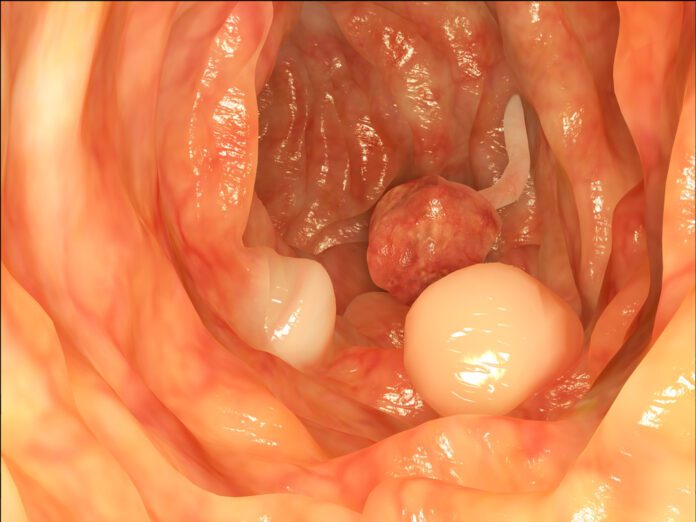Overview Of Colorectal Polyps
A colorectal polyp is a growth on the lining of the colon or rectum.
Commonly Associated With
Intestinal polyps; Polyps – colorectal; Adenomatous polyps; Hyperplastic polyps; Villous adenomas; Serrated polyp; Serrated adenoma; Precancerous polyps; Colon cancer – polyps; Bleeding – colorectal polyps
Causes Of Colorectal Polyps
Polyps of the colon and rectum are most often benign. This means they are not cancer. You may have one or many polyps. They become more common with age. There are many types of polyps.
Adenomatous polyps are a common type. They are gland-like growths that develop on the mucous membrane that lines the large intestine.
Colorectal polyp are also called adenomas and are most often one of the following:
- Tubular polyp, which protrudes out in the lumen (open space) of the colon
- Villous adenoma, which is sometimes flat and spreading, and is more likely to become a cancer
- When adenomas become cancerous, they are known as adenocarcinomas. Adenocarcinomas are cancers that originate in glandular tissue cells. Adenocarcinoma is the most common type of colorectal cancer.
Other types of polyps are:
- Hyperplastic polyps, which rarely, if ever, develop into cancer
- Serrated polyps, which are less common, but may develop into cancer over time
Polyps bigger than 1 centimeter (cm) have a higher cancer risk than polyps smaller than 1 centimeter. Risk factors include:
- Age
- Family history of colon cancer or polyps
- A type of polyp called villous adenoma
A small number of people with colorectal polyps may also be linked to some inherited disorders, including:
- Familial adenomatous polyposis (FAP)
- Gardner syndrome (a type of FAP)
- Juvenile polyposis (a disease that causes many benign growths in the intestine, usually before 20 years old)
- Lynch syndrome (HNPCC, a disease that raises the chance of many types of cancer, including in the intestine)
- Peutz-Jeghers syndrome (a disease that causes intestinal polyps, usually in the small intestine and usually benign)
Symptoms Of Colorectal Polyps
Polyps usually do not have symptoms. When present, symptoms may include:
- Blood in the stools
- Change in bowel habit
- Fatigue caused by losing blood over time
Exams & Tests
Your health care provider will perform a physical exam. A large polyp in the rectum may be felt during a rectal exam.
Most polyps are found with the following tests:
- Barium enema (rarely done)
- Colonoscopy
- Sigmoidoscopy
- Stool test for hidden (occult) blood
- Virtual colonoscopy
- Stool DNA test
- Fecal immunochemical test (FIT)
Treatment Of Colorectal Polyps
Colorectal polyps should be removed because some can develop into cancer. In most cases, the polyps may be removed during a colonoscopy.
For people with adenomatous polyps, new polyps can appear in the future. You should have a repeat colonoscopy, usually 1 to 10 years later, depending on:
- Your age and general health
- Number of polyps you had
- Size and type of the polyps
- Family history of polyps or cancer
- In rare cases, when polyps are very likely to turn into cancer or too large to remove during colonoscopy, the provider will recommend a colectomy. This is surgery to remove part of the colon that has the polyps.



